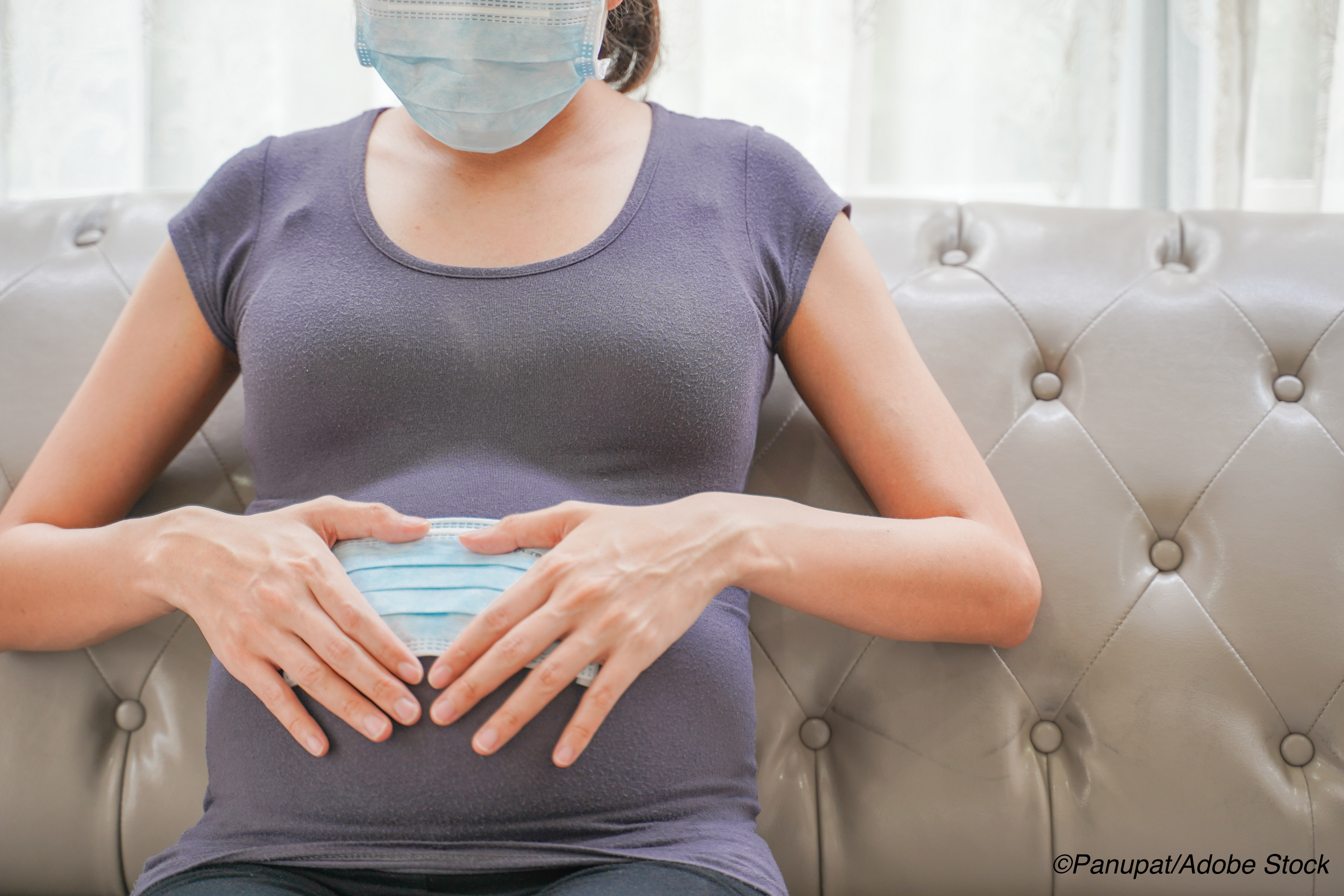
In addition, the researchers documented a correlation between cord blood antibody concentrations and maternal antibody concentrations, as well as time from infection onset and delivery.
“Newborn protection from infection is primarily dependent on neonatal innate immune responses and maternally derived, transplacentally acquired antibodies. The extent to which maternal antibodies produced in response to severe acute respiratory syndrome coronavirus 2 (SARS-CoV-2) infection during pregnancy cross the placenta is important for understanding potential neonatal protection from coronavirus disease 2019 (COVID-19) and for developing appropriate maternal vaccination strategies when effective vaccines are widely available,” wrote lead author Dustin D. Flannery, DO, MSCE, of the Children’s Hospital of Philadelphia, and fellow researchers.
“To date and to our knowledge, studies of transplacental transfer of maternal SARS-CoV-2–specific antibodies to newborns are limited to case reports and small case series of women with symptomatic infection,” they added.
For this retrospective study, Flannery et al included 1,714 women (median age: 32 years; 51.3% white/non-Hispanic; 26.3% black/non-Hispanic; 7.3% Asian; 3.3% other) who delivered infants between April 9, 2020, and Aug. 8, 2020. Matched sera were available for 1,471 mother/newborn dyads.
Using enzyme-linked immunosorbent assay, they measured IgG and IgM antibodies to the receptor-binding domain of the SARS-CoV-2 spike protein, measured antibody concentrations, and calculated transplacental transfer ratios.
In 6% of these mothers (n=83), SARS-CoV-2 IgG and/or IgM antibodies were detected at the time of delivery (95% CI: 5%-7%), and in 87%, IgG was detected in cord blood (95% CI: 78%-93%). Notably, a full 60% of seropositive women were asymptomatic.
Among the infants born to seropositive women, 87% were seropositive (95% CI: 78%-93%) and 13% (95% CI: 7%-22%) seronegative. No seropositive infants were born to the 1,388 women who were seronegative.
In all, 11 infants born to seropositive mothers were seronegative. Of these, 45% (n=5) were born to mothers with IgM antibody only, and 55% (n=6) to mothers with significantly lower IgG concentrations compared with those from mothers of seropositive infants.
Flannery and colleagues observed that cord blood IgG concentrations—but not IgM—were directly associated with maternal antibody concentrations. They found a positive correlation between cord blood IgG concentrations and maternal IgG concentrations (r=0.886; P < 0.001).
IgM was not found in any cord blood specimen, and antibodies were not found in any infants born to mothers who were seronegative. Among the 72 infants who were seropositive, none had detectable SARS-CoV-2 IgM antibodies.
“Our findings align with current evidence that suggests that although placental and neonatal SARS-CoV-2 transmission may occur, such events are not common. We did not detect IgM antibodies in any cord blood serum samples even increases of critical maternal illness or preterm delivery, supporting that maternal-fetal SARS-CoV-2 transmission is rare,” noted Flannery and colleagues.
In women with asymptomatic SARS-CoV-2 infection and those with mild, moderate, and severe disease, placental transfer ratios greater than 1.0 were seen. When these researchers assessed the association between transfer ratio and onset of maternal infection in 26 women with mild, moderate, or critical COVID-19 illness, they found a positive correlation between transfer ratio and increasing time between NP-PCR testing and delivery (r=0.620; P < 0.001).
When comparing preterm with term deliveries, Flannery and colleagues found no differences in the geometric mean transfer ratio (O: 53 [95% CI: 0.23-1.21] vs 0.96 [95% CI: 0.81-1.13; P=0.41]).
“Our findings demonstrate the potential for maternally derived antibodies to provide neonatal protection from SARS-CoV-2 infection and will help inform both neonatal management guidance and design of vaccine trials during pregnancy. Further studies are needed to determine if SARS-CoV-2 antibodies are protective against newborn infection; if so, at what concentration; and whether the transplacental kinetics of vaccine-elicited antibodies are similar to naturally acquired antibodies,” concluded Flannery and colleagues.
Their results are relevant not only because they document neonatal protection from maternally derived antibodies to SARS-CoV-2, but because they may inform future vaccination efforts, especially in regard to timing, according to Flor M. Munoz, MD, of Baylor College of Medicine, Houston, TX.
“The study of Flannery et al, along with similar observations in various reports of COVID-19 infection during pregnancy, has important implications for pandemic control through vaccination, specifically, to inform maternal and infant vaccination strategies. While transplacental transfer ratios may vary, it is reassuring that maternal infection, whether symptomatic or asymptomatic, results in sufficient antibody production for an efficient transplacental antibody transfer to newborns of infected mothers because maternal vaccination could do the same. However, the timing of maternal vaccination to protect the infant, as opposed to the mother alone, would necessitate an adequate interval from vaccination to delivery (of at least 4 weeks), while vaccination early in gestation and even late in the third trimester could still be protective for the mother,” Munoz wrote in an accompanying editorial.
“When considering that up to 2 weeks from complete vaccination (2-dose series with an interval of 21 or 28 days or more between doses with current COVID-19 vaccines) is necessary for higher efficacy of the vaccine and that transplacental transfer begins around 17 weeks of gestation, increasing exponentially as gestation advances and the placenta grows, maternal vaccination starting in the early second trimester of gestation might be optimal to achieve the highest levels of antibodies in the newborn,” she concluded.
Study limitations include its retrospective nature, single-site sample collection, few preterm birth samples, limited assessment of COVID-19 symptoms during pregnancy, and lack of data on postdelivery discharge outcomes in mothers and infants.
- In this retrospective study, researchers found that most SARS-CoV-2 seropositive pregnant women—whether or not they were symptomatic for COVID-19 infection—successfully transferred antibodies to their newborns.
- Transplacental transfer of SARS-CoV-2 IgG antibodies supports the potential for maternally derived antibodies to protect newborns from SARS-CoV-2 infection.
E.C. Meszaros, Contributing Writer, BreakingMED™
This study was funded in part, by the Children’s Hospital of Philadelphia Foerderer grant.
Flannery reported no disclosures.
Munoz reported serving on the data and safety monitoring boards of Moderna, Pfizer, Virometix, and Meissa Vaccines and grants from Novavax Research and Gilead Research outside the submitted work.
Cat ID: 41
Topic ID: 83,41,933,926,41,927,928,934

